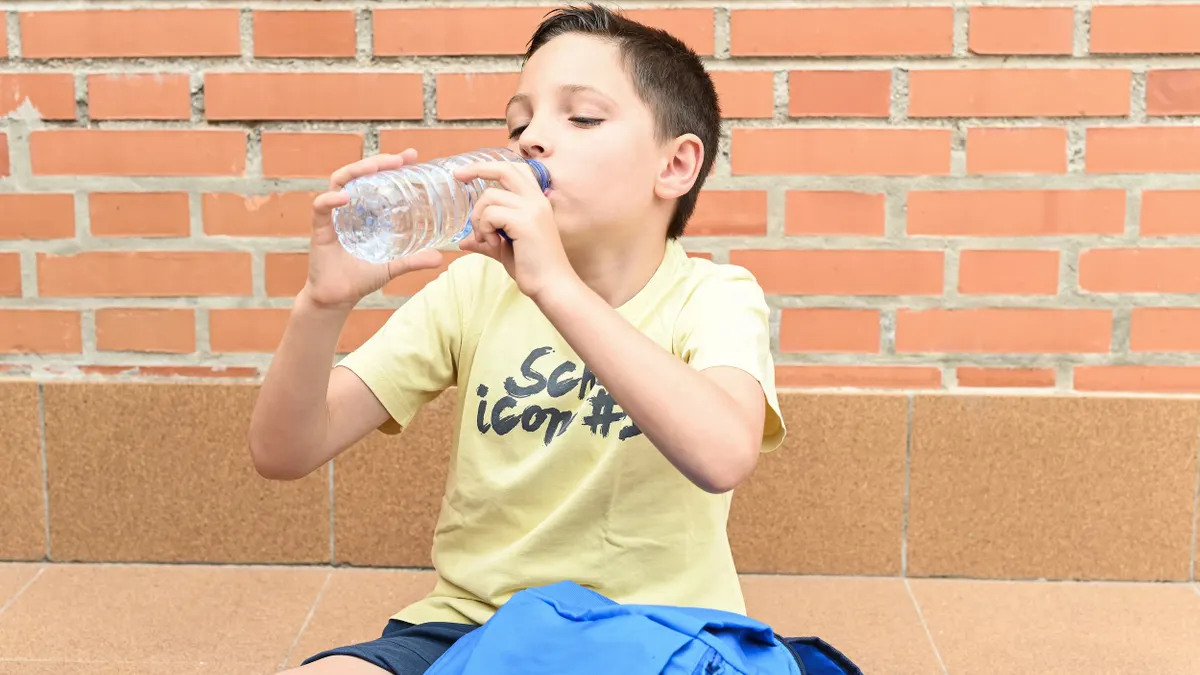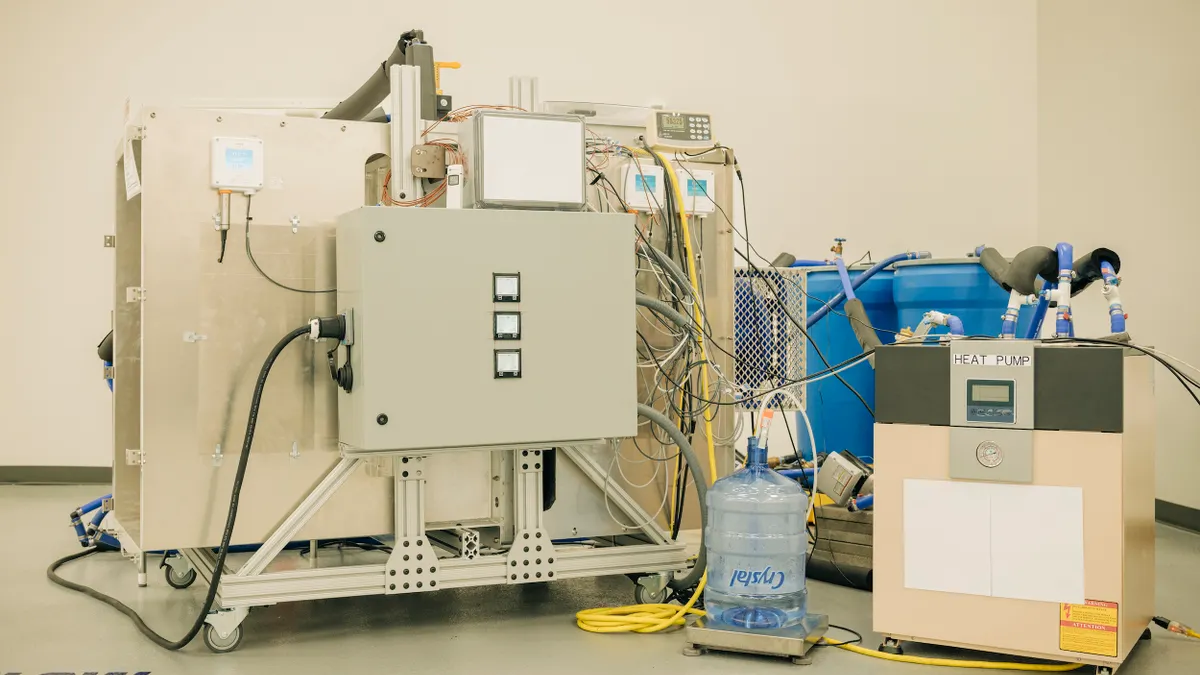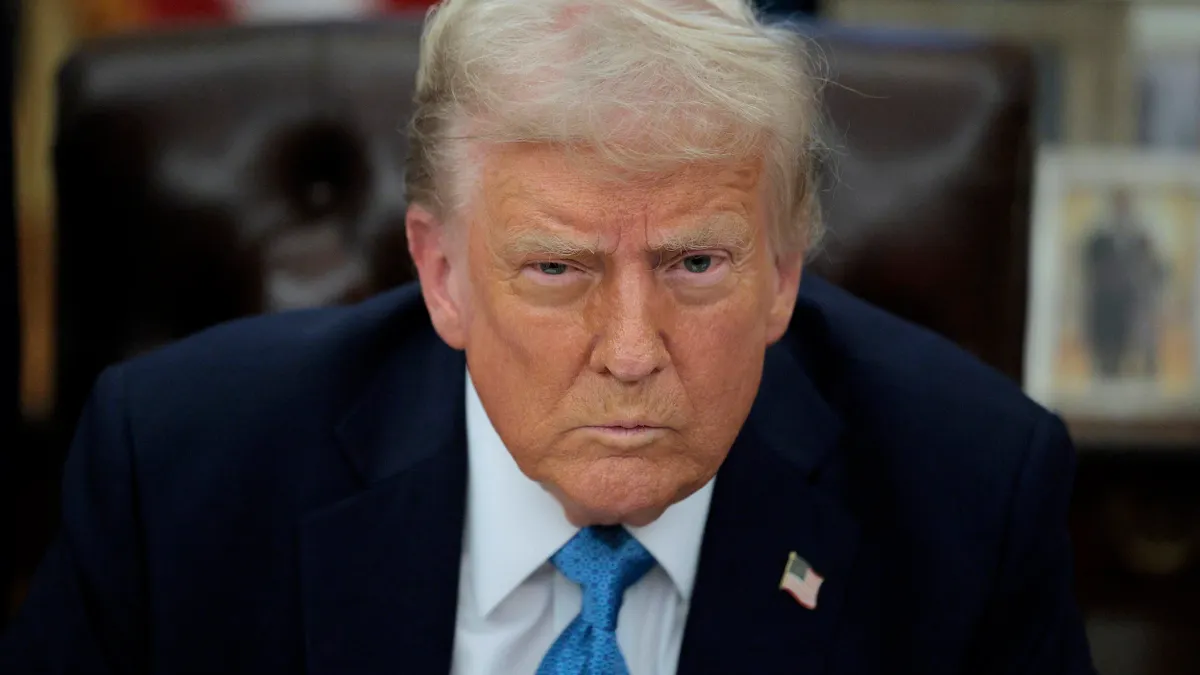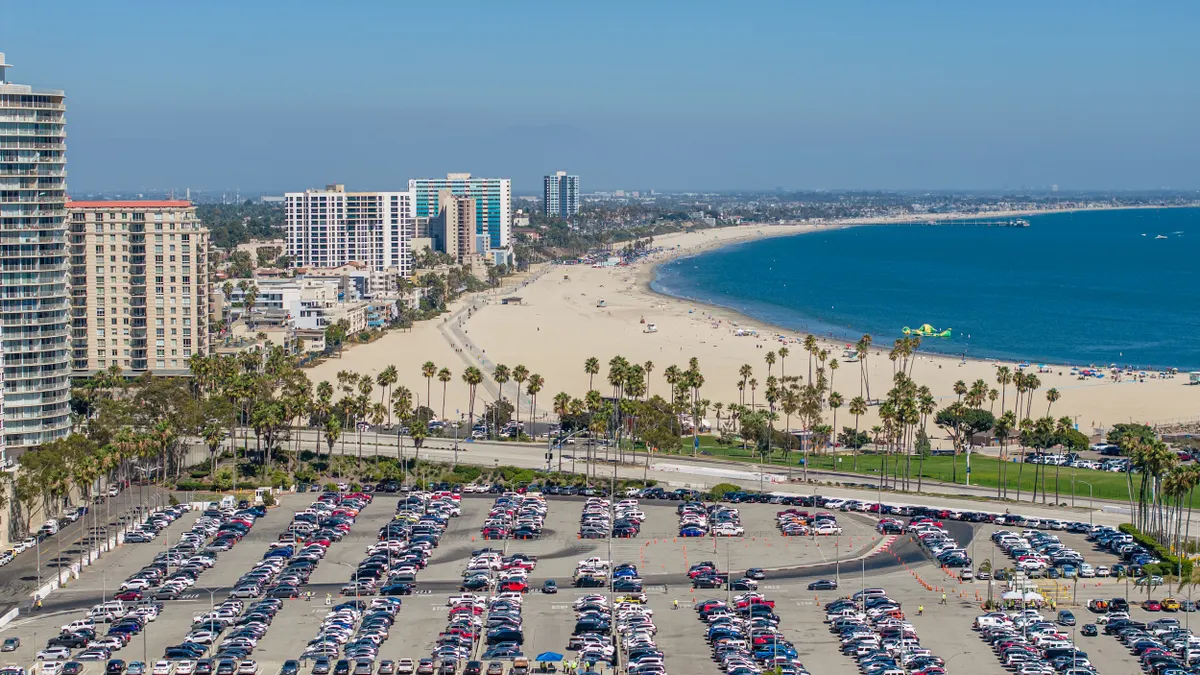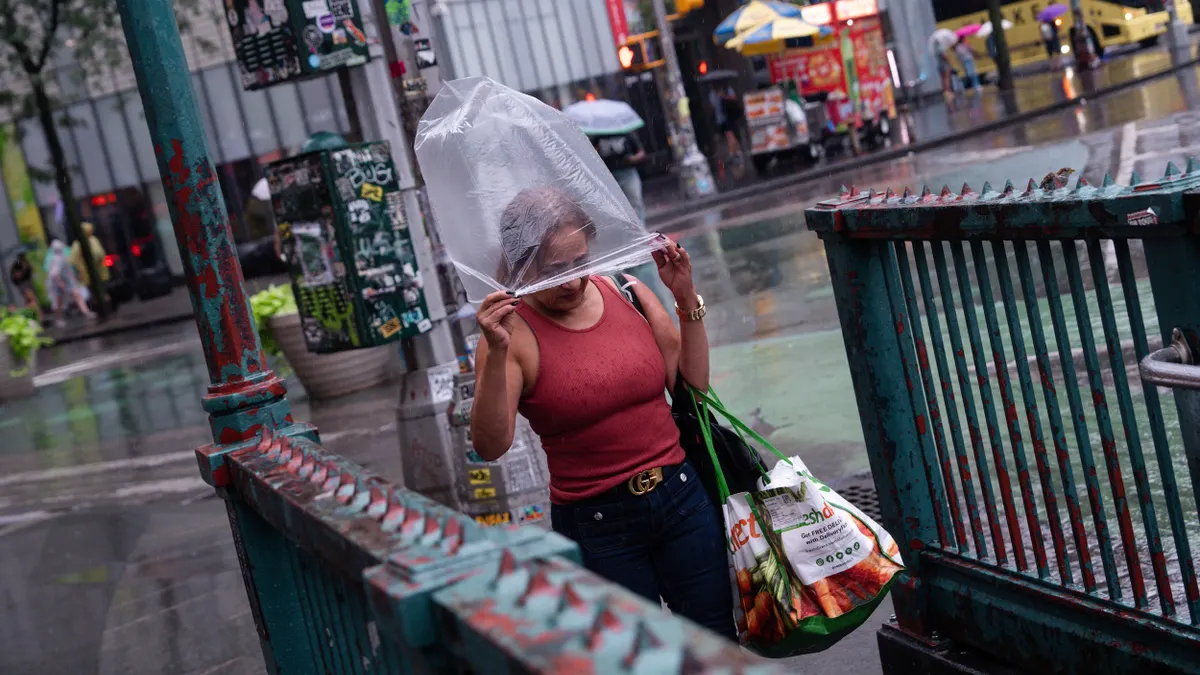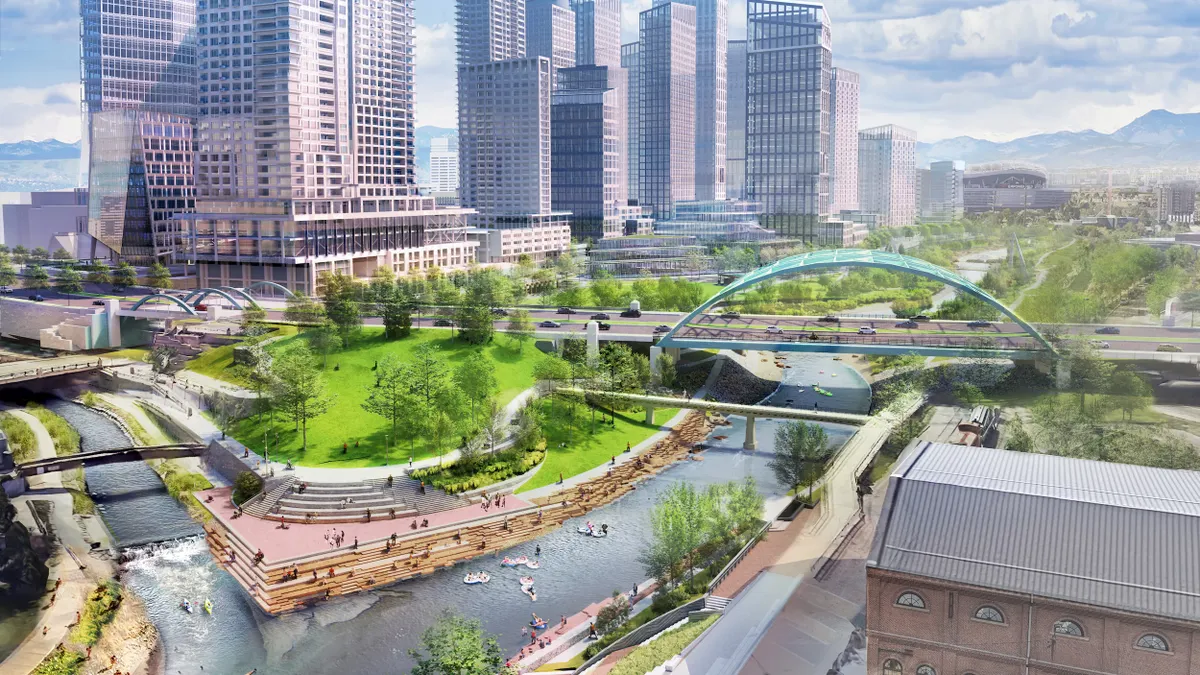The recently passed $2 trillion stimulus package, signed by President Trump on March 27, will provide aid to individuals, cities, health care providers and companies across a number of sectors as they grapple with the unprecedented impacts of the new coronavirus. Yet there's one industry that won't see a penny in funding: cleantech.
Efforts to bolster investments in various cleantech sectors, including solar, wind, energy storage and transportation electrification, have been consistent in major U.S. cities over the last few years. As COVID-19 shuts down businesses and halts innovation, however, some leaders are worried the momentum behind cleantech will be lost when the outbreak ceases.
Matt Petersen, CEO of the Los Angeles Cleantech Incubator (LACI) and former cheif sustainabiity officer for the City of Los Angeles, says the onus is on cities "to not only reduce humankind's vulnerability to coronavirus and flatten the curve of this pandemic, but also to restart the economy through startups and small businesses, put people back to work in our communities and help urban areas become more resilient." He said cities are on the front lines of both COVID-19 and climate crisis mitigation, and it's crucial to not lose sight of the latter during this pandemic.
Smart Cities Dive caught up with Petersen to learn how the coronavirus pandemic is impacting jobs and services in the cleantech sector, what he hopes for in the next federal stimulus package and how cities can support cleantech innovation amid a lack of direct federal support.
The following interview has been edited for clarity and brevity.
SMART CITIES DIVE: How has LACI been impacted by this pandemic so far?
PETERSEN: As for most, we're not able to work in person on our campus. And the value of the campus is it's an innovation center. Because there are 150 people that work on any given day and then another 100 to 200 a day that come into the campus for meetings, you have a rich exchange of ideas and connections that happen on the campus. It could be talking to an entrepreneur working on a solar technology or an electric vehicle (EV) technology or, you know, an investor who happens to walk down the hallway and meets one of our entrepreneurs. Those things obviously don't happen in a situation like this.
We know the startups and small businesses that we help support are struggling. A couple have pivoted and have pivoted well, but many are struggling in this situation. So we're doing everything we can to coach them and support them and help them access resources.
We're planning a webinar with the city … to share ideas that they might consider to work through this challenging time and keep enough cash on hand to work through the crisis. It's affecting us in a number of ways. But we're trying to be responsive for the needs of our entrepreneurs as well.
At the same time, given some of the broader things we work on like our Transportation Electrification Partnership, we’re thinking how can we inform and influence the next stimulus package...and make sure included in that is infrastructure dollars that will put charging stations in place, put money into electric truck manufacturing, and other things that will put people back to work, including in our factories, including those small businesses that do things like install chargers and put up solar and put in battery storage. We need to train people for these types of jobs as these transitions are ready.
Are there examples of startups you work with that have seen more obstacles than others amid this pandemic?
PETERSEN: We have one, Hive Lighting, and their sweet spot in the market is TV and film production. They make energy-efficient light that's got high quality that is being used in many Emmy and award-winning TV productions, so their market is coming to a complete halt. They've struggled and they're looking for ways to work through this.
Another, Pick My Solar, is seeing an uptick in interest in solar and storage systems. So they have the other end, sort of an uptick in business.
What are the unique economic challenges facing the cleantech sector as we work through this?
PETERSEN: I'm just talking broadly about the green economy, not necessarily the emerging cleantech startups, but solar installers in some cases are struggling because building permit counters are closed. When I was in the mayor's office, we spearheaded an initiative to put all of our solar permitting for 10 kilowatt systems or less online. So hopefully this is a chance for city permitting to go online for standard designs like smaller solar systems.
We also have corporate partners that are making EV in the U.S. that have shut down production. And getting access to testing equipment for some startups as they try to get their product to market is also a challenge.
In other cases, we're finding a sense of some of our startups’ projects being essential services. We have a company called Envoy in our portfolio that does EV car-sharing, and they've delivered electric vehicles for car-sharing programs for lower-income customers. And that's where we're focused on two sites, one in San Pedro and one in Pacoima (Los Angeles).
In conference with the city, we determined that the construction of EV charging stations was considered essential and critical, because now more than ever, people that live in the housing projects near the charging stations need more access to cars than ever as they try to get work, as they try to get an interview. Generally, it's key to upward economic mobility, so we're trying to improve more last-mile/first-mile solutions.
Can you elaborate on what you're hoping for in the next stimulus package?
PETERSEN: We really feel strongly that in the next package, dollars should be put explicitly toward the cleantech innovation ecosystem, to the research and the startups working with that research, and to bringing products to market. Startups and small businesses are the engine for every local economy, so how do we put them back to work and provide them with access to capital?
We're going to need charging infrastructure, and that means jobs for people to put that charging infrastructure in place. We need to add electrical capacity from the utility side to provide the electricity for it. That is going to put people back to work. We're going to need more renewable energy supply to meet both clean energy mandates, but also provide resiliency to the grid and additional capacity needed.
"Startups and small businesses are the engine for every local economy, so how do we put them back to work and provide them with access to capital?"

So while not everybody in Congress may agree with that perspective, these are all things that put people back to work, including small businesses, including labor, including larger companies that can deliver these solutions and provide the long-term economic benefit through cleaner air.
With the EPA’s fuel efficiency rollback, it's a little contradictory at a time when we know people who breathe dirty air are more susceptible to viruses. So how do we continue down this path toward zero emissions, where automakers are moving 100% in that direction, and put the infrastructure in place that puts people to work, helps startups and small businesses come back to life, or come into existence for that matter?
How do you think that this virus will change the demand for cleantech innovation?
PETERSEN: Anecdotally, I will say I've talked to a lot of people who, as we spend time at home and walk in our neighborhoods, hear more birds chirping and notice the cleaner air.
I think the benefits on air quality and greenhouse gas emissions, unfortunately, will likely be short lived unless we take this opportunity in the stimulus funding to really significantly shift in a more zero emissions direction as California has been doing. Hopefully other parts of the country continue to follow our lead and hopefully eclipse California and Los Angeles.
It's just unfortunate that there's a political divide that sees things in black and white in regard to this, but we know that the science around the pandemic we're facing, it was proven right. We know the climate science is right. So how do we align our priorities to move in this direction so that we don't end up with an ongoing set of continued disasters? It’s critical for public health, economic growth and much more. So it's to be seen, but I'm not pollyannish yet. I’m hopeful.
What can local governments do to support the cleantech sector and those entrepreneurs or small businesses in this time?
PETERSEN: The City of Los Angeles puts community development block grant (CDBG) dollars into LACI through the economic development focus of the city. And we know that other cities do the same in innovation incubators and startup incubators across the country. That's a tool that cities can use as there's an influx of CDBG dollars from the current stimulus package, and likely in [the next] package, to be able to put into cleantech solutions and do things like we're doing on job training for EV charging maintenance and station maintenance.
We know the same is true for state agencies and offices across the country that can help both secure and deploy dollars into communities to work on these sorts of solutions.
There's a number of things that states and cities can do, but just in the economic development front, helping to support startups and small businesses in these spaces is something that is allowable.
To keep up with all of our coverage on how the new coronavirus is impacting U.S. cities, visit our daily tracker.









